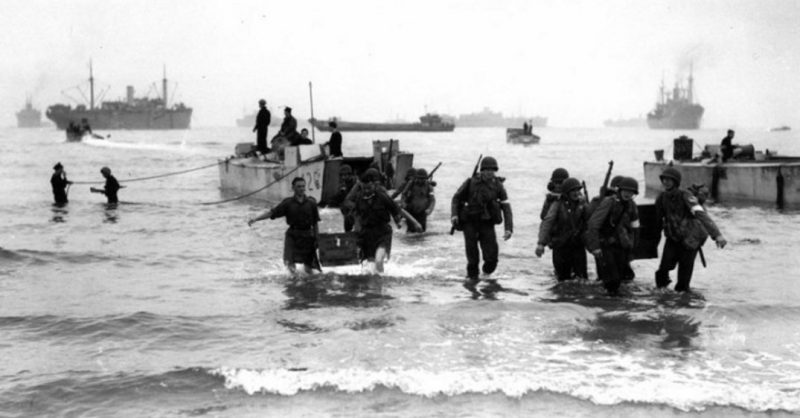Vincent O’Hara has written or co-written eleven books about military history. Most of them were published by the Naval Institute Press, who named him their “Author of the Year” for 2016.
His latest work is “Torch” which tells about a little known amphibious assault on French North Africa by US and UK troops in World War II. Recently was the 74th anniversary of the assault which was intended to assist the Russians by opening a new front against the Germans. Historians disagree as to whether the assault shortened the war or actually lengthened it.
Operation Torch was the first major offensive where the Americans and British worked together as partners. Before this operation, they had never worked as a team. The British felt like the senior members of the team as they had experience fighting the Germans. The Americans felt that the British were a bit tired and not as effective as they could be.
An important part of Torch was that it gave the two armies a chance to work together in a setting where they wouldn’t have lost the war if they had last the battle. Had they invaded France in 1942 and lost, it would have been a very serious blow. The stakes were not so high on Africa.
Sending an army over a body of water and landing them on a beach is a very complicated procedure. Prior to the US entering the war, the British had tried landing in Norway and been unsuccessful. They tried to attack in Dakar, Africa, and were totally defeated.
Torch taught the Allies the importance of training and preparation for amphibious landings. You can’t just put soldiers on a boat and send them off. You have to learn how to load the boats so the most important things are loaded where you can get them off quickly. You have to practice getting in the boat when you are loaded with 70-80 pounds of ammunition, weapons and your pack.
Torch has been mostly forgotten, partly because the Allies were attacking a neutral country without warning which conflicts with our views of the roles the Axis and the Allies held in the war, The San Diego Union – Tribune reported.
It was also forgotten because it was overshadowed by the events that followed it. Things happened very quickly in the war. The invasion of Sicily less than eight months later and Normandy less than two years later made us forget Torch.
To prepare for the invasion, they needed 60 tons of maps per landing site for a total of 300 tons of maps. They took over every map maker in Britain to produce them. They made them take the North arrows and change the orientation so they would confuse anyone who captured the maps.
